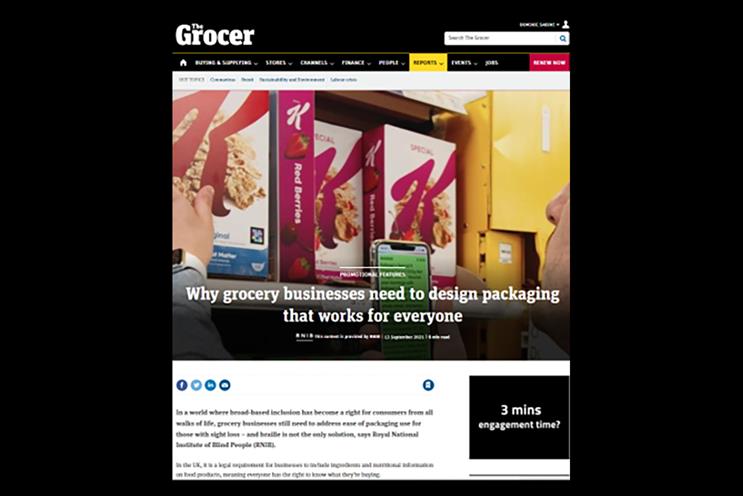
A huge number of people with sight loss - 90% - find information on packaging difficult or impossible to read despite it being a legal requirement to include ingredients and nutritional information on food products. This is a major barrier to independence for blind and partially sighted people and many are suffering a poor quality of life as a result.
To combat this problem, RNIB wanted a bold and provocative campaign that would raise awareness of the issue and apply pressure to UK businesses to make their packaging more accessible. It wanted to get business decision makers to really empathise with the issue, and put them in the shoes of a blind or partially sighted person so they could experience the issue firsthand.
The ‘Whatsin Store’ was a corner shop stocked with deliberately inaccessible packaging, from intentionally vague branding to items with no product information. Hidden cameras in the shop filmed people’s reactions when confronted with inaccessibility first hand, while the shopkeeper revealed that this is often the reality for people with sight loss when they’re out shopping.
Digital media was then used to amplify this content across targeted video and social and trade publishing was also used.
The campaign smashed set targets. Judges said the work was ‘really creative, [showing] insight-led use of media with tangible business outcomes’, and that it was a great example of the power of empathy to drive meaningful change.
Shortlisted:
How Cadbury introduced ‘A New Type of Gold’ and created the world’s firstever Chocolate Bar Stock Exchange by Dentsu London Limited - Carat for Mondelēz | Cadbury Wispa
Launch Berocca Boost by MediaCom for Bayer/Berocca
The ad break we never expected to be in by PHD UK for The British Heart Foundation, ITV, Saatchi & Saatchi London
Uswitch ‘U Stay Put’ by Zenith UK for Uswitch
Vita Coco, Work from Anywhere by Yonder Media for Vita Coco

